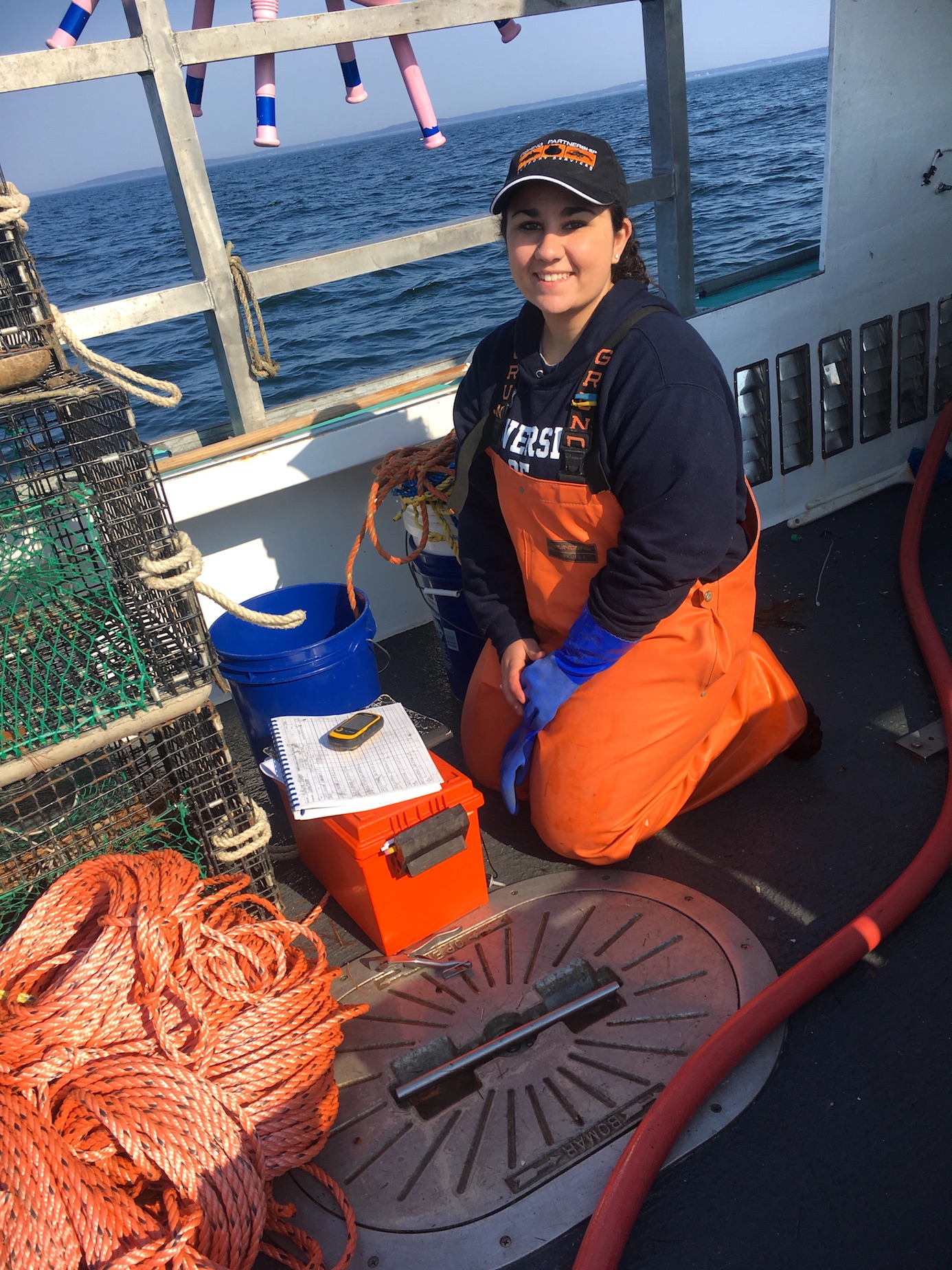
Grad Studies at UMaine
A Reflection by Marina Cucuzza, UMaine Graduate Student
August 2017
As the summer winds to a close, I will soon leave the Darling Marine Center to begin my first semester of graduate school at the University of Maine. There hasn’t been a dull moment since I arrived at the marine lab in early May 2017, as my research assistantship and resident life assistant position has kept me quite busy. This summer was full of opportunities for research, public outreach, and professional development, and I am grateful to have spent time both in the lab and on the water.
In collaboration with Profs. Heather Leslie and Josh Stoll, my research has focused on investigating conservation efforts in the United States that exemplify marine ecosystem based management. From the Puget Sound Partnership in Washington to the Florida Keys National Marine Sanctuary, these initiatives work to protect ocean resources while meeting the needs of people. Through a literature analysis and policy document review, I explored the drivers, governance structures, challenges, and accomplishments of these organizations. I developed flowcharts that outline their co-management structures and created timelines that track their progress. To learn about the processes that facilitate successful management, I interviewed managers, policy-makers, and scientists.
The information gained from this project will inform discussions on cooperative research and co-management efforts locally in the Gulf of Maine. I will present this work at a workshop this fall that will focus on opportunities to integrate and advance ecosystem-based fisheries management in Maine.
One of the most valuable experiences I had this summer was the opportunity for public outreach. I led weekly walking tours of the marine lab’s waterfront facilities, helped run an undergrad professional development program, and volunteered to teach visitors about plankton at the Damariscotta Mills alewife festival. These experiences were great opportunities to engage with the public and communicate science.
A highlight of my summer was the day I spent on a lobster fishing boat with a researcher from the Maine Department of Marine Resources. The trip was part of the sea sampling survey, an effort to collect biological and catch/effort information within Maine’s lobster fishery. Lobster traps were hauled to assess the number and characteristics of legal, sublegal, oversize, egg-bearing, and V-notched lobsters. I measured and tagged over 60 Jonah crabs that were caught in the lobster traps (and only got pinched once) as part of an ongoing migration and stock assessment study. I also helped V-notch egg bearing female lobsters and learned to stage egg development of these “eggers.” It was a long and exhausting day at sea, but I am grateful for the opportunity to learn from both fishermen and scientists.
With the start of the semester, I am beginning my dual masters degrees in marine biology and marine policy. My thesis will explore questions relating to resilience and sustainability of Maine’s coastal fishing communities in the face of ecological and social change. The work I did this summer has been instrumental in preparation for my thesis work and I am beyond grateful for my summer at the Darling Marine Center and excited for the work that lies ahead.
